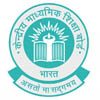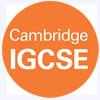
The GCSE Board: Shaping the Future of Students
Education is an essential aspect of human life, and every nation has its way of preparing its citizens for the future. In the United Kingdom, one of the most important qualifications that a student can attain is the General Certificate of Secondary Education (GCSE). The GCSE board is a vital component of the British education system and is often considered the cornerstone of further academic achievements. In this article, we will take a closer look at the history, meaning, and impact of the GCSE board.
A Brief History
The GCSE board replaced the previous O-Level (Ordinary Level) and CSE (Certificate of Secondary Education) qualifications in 1986. The GCSE was designed to be a standardized exam for all students at the end of their secondary education. It aimed to provide a more comprehensive and consistent evaluation of a student's academic performance than the previous qualifications.
About Board Certification
The GCSE board is a standardized exam that students in the UK take at the end of their secondary education. It assesses a student's knowledge and skills in a variety of subjects, including English, mathematics, science, and social studies. The GCSE board is also used to evaluate a student's ability to think critically, analyse information, and solve problems.
The GCSE board is a standardized exam that students in the UK take at the end of their secondary education. It assesses a student's knowledge and skills in a variety of subjects, including English, mathematics, science, and social studies. The GCSE board is also used to evaluate a student's ability to think critically, analyse information, and solve problems.
The GCSE board covers a wide range of subjects, including traditional academic subjects such as mathematics and English, as well as more specialized subjects such as music, art, and drama. The goal of the GCSE board is to provide students with a well-rounded education and to prepare them for further academic pursuits, such as A-levels and university.
Number of Schools Affiliated with the GCSE Board
According to the latest statistics available, there were approximately 3,300 schools in England and Wales that offered GCSE exams in 2020. The majority of these schools were state-funded schools, while around 800 were independent schools. The GCSE board is also offered in some schools in Scotland and Northern Ireland.
Regions Where the GCSE Board is Offered
The GCSE board is offered primarily in the United Kingdom, where it serves as the main secondary school qualification. However, the GCSE board is also offered in a number of other countries around the world, particularly in British schools overseas. These schools may offer the GCSE board as an alternative to the local education system or as a supplement to it, depending on the needs of the students.In addition to the UK, some of the regions where the GCSE board is offered include:
• Europe: The GCSE board is offered in a number of European countries, including France, Germany, Spain, and Switzerland.
• Middle East: The GCSE board is offered in several Middle Eastern countries, such as Qatar, Oman, and the United Arab Emirates, where there is a significant British expatriate population.
• Asia: The GCSE board is also offered in a number of Asian countries, including China, Hong Kong, India, Indonesia, Japan, Malaysia, Singapore, and Thailand.
• Africa: Some British schools in Africa offer the GCSE board, particularly in countries such as Egypt, Kenya, and South Africa.
In these regions, the GCSE board is often used as a way to prepare students for further education in the UK or other English-speaking countries. The qualifications are recognized globally, making them a valuable asset for students seeking higher education or employment opportunities abroad.
Impact of the GCSE Board
The impact of the GCSE board on education in the United Kingdom and beyond is significant. The GCSE board serves as a standard measure of academic performance for secondary school students, providing a way for educators, employers, and universities to assess students' knowledge and skills. Here are some of the key impacts of the GCSE board:• Standardization: The GCSE board serves as a standardized measure of academic performance for all students in the UK, regardless of their background or school. This means that students who excel in the GCSE board can demonstrate their abilities to potential employers and universities on an equal footing.
• Preparation for Further Education: The GCSE board prepares students for further education, such as A-levels and university. The GCSE curriculum covers a broad range of subjects, including English, mathematics, science, and humanities, providing students with a solid foundation for higher education.
• Employability: The GCSE board is recognized by employers around the world, making it a valuable qualification for students seeking employment. Employers recognize the GCSE board as an indication of a student's academic performance and their ability to work hard and achieve their goals.
• International Recognition: The GCSE board is recognized internationally, making it a valuable qualification for students who wish to study or work abroad. Universities and employers in other countries recognize the GCSE board as a measure of academic performance and a demonstration of a student's knowledge and skills.
• Social Mobility: The GCSE board plays an important role in promoting social mobility by providing students with equal opportunities to demonstrate their abilities. The standardization of the GCSE board means that students from all backgrounds can achieve success based on their abilities, rather than their socioeconomic status or other factors.
In conclusion, the GCSE board is a vital component of the United Kingdom's education system, serving as a standardized measure of academic performance and preparing students for further education and employment. Its impact on education in the UK and beyond is undeniable, providing a valuable qualification that is recognized by employers and universities around the world. The GCSE board's future prospects are equally promising, with a focus on new subjects, digital learning, alternative assessment methods, international collaboration, and well-being.
The GCSE board is a symbol of academic excellence, promoting social mobility and equal opportunities for all students. It is a testament to the dedication and hard work of educators, students, and policymakers who have worked tirelessly to create an education system that is fair, rigorous, and innovative. The GCSE board is a shining example of what can be achieved when we invest in our children's future and prioritize education as a key driver of social and economic progress.
In a world that is rapidly changing, the GCSE board provides a solid foundation for students to navigate the complexities of the modern workplace and society. It is a qualification that opens doors and creates opportunities, enabling students to achieve their full potential and contribute to the world in meaningful ways. The GCSE board is not just a qualification, but a symbol of hope, opportunity, and progress. As Nelson Mandela once said, "Education is the most powerful weapon which you can use to change the world." The GCSE board is proof that education can indeed change the world, one student at a time.













Leave a query